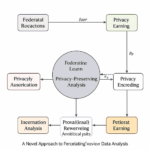The intersection of quantum computing and finance is rapidly evolving, promising a revolution in financial modeling and risk management. This article explores how quantum algorithms could dramatically improve the accuracy and speed of complex financial calculations, ultimately leading to better investment strategies and more robust risk mitigation. We will delve into the specific applications of quantum computing in areas such as portfolio optimization, option pricing, and fraud detection, examining both the potential benefits and the challenges that lie ahead in adopting this transformative technology. We will also discuss the current state of quantum computing hardware and software, and consider the timeline for widespread adoption within the financial industry. Finally, we’ll analyze the implications for both financial institutions and individual investors, highlighting the potential for both unprecedented opportunities and significant disruption.
Enhanced Portfolio Optimization
Traditional portfolio optimization techniques often struggle with the complexities of large datasets and numerous variables. Quantum algorithms, particularly those based on quantum annealing and variational methods, offer the potential to significantly improve the efficiency of portfolio optimization. Quantum computers can explore a much larger solution space than classical computers, allowing for the identification of optimal portfolios that maximize returns while minimizing risk. This is crucial for managing diverse asset classes and navigating complex market conditions. For instance, quantum algorithms can handle constraints and incorporate various risk factors more effectively than classical methods, leading to better-diversified and more robust portfolios. The improved speed also allows for more frequent rebalancing, adapting to dynamic market changes in real-time.
Revolutionizing Option Pricing
Option pricing models, such as the Black-Scholes model, rely on simplifying assumptions that often fail to capture the intricacies of real-world markets. Quantum computing offers a path to more accurate option pricing by enabling the modeling of complex stochastic processes and handling high-dimensional data more efficiently. Quantum Monte Carlo simulations, for example, can provide faster and more accurate valuations, especially for path-dependent options which are notoriously difficult to price using classical methods. This increased precision translates directly into improved risk management and more informed trading decisions. The ability to accurately price complex derivatives is particularly vital in today’s sophisticated financial landscape.
Quantum Computing and Fraud Detection
The financial industry is plagued by various forms of fraud, including credit card fraud, identity theft, and market manipulation. Quantum machine learning algorithms can significantly enhance fraud detection capabilities. These algorithms can analyze massive datasets of transactions and identify subtle patterns indicative of fraudulent activity far more efficiently than classical machine learning models. Their ability to handle high-dimensional data and complex relationships makes them ideally suited to detecting sophisticated fraud schemes that might go unnoticed by traditional methods. Moreover, quantum computers’ potential for improved encryption can contribute to increased security in financial transactions.
Challenges and Future Outlook
Despite the immense potential, several challenges hinder the widespread adoption of quantum computing in finance. The current generation of quantum computers is still relatively small and prone to errors. The development of robust quantum algorithms specifically tailored for financial applications requires further research and development. Furthermore, the specialized skills needed to build, maintain and operate quantum systems are currently in short supply. However, the rapid advancements in quantum technology suggest that many of these challenges are likely to be overcome in the coming years. The financial industry is actively investing in research and development, anticipating a future where quantum computing plays a significant role in everyday financial operations.
| Algorithm | Application | Benefit |
|---|---|---|
| Quantum Annealing | Portfolio Optimization | Faster convergence to optimal solutions |
| Quantum Monte Carlo | Option Pricing | Improved accuracy and speed |
| Quantum Machine Learning | Fraud Detection | Enhanced pattern recognition capabilities |
In conclusion, quantum computing holds immense promise for revolutionizing financial modeling and risk management. We have explored the potential of quantum algorithms in optimizing portfolios, pricing options, and detecting fraud, demonstrating how they can address critical challenges within the financial industry. While significant technological hurdles remain, the rapid progress in quantum computing suggests that these techniques will increasingly transform financial practices in the years to come. The potential for more accurate models, faster computations, and improved risk management will lead to better investment strategies, increased efficiency, and more robust financial systems. Both financial institutions and individual investors stand to benefit significantly from the adoption of this transformative technology, although it’s crucial to acknowledge the need for continued research, development, and careful consideration of the implications of this powerful new tool.
Image By: Black Forest Labs






